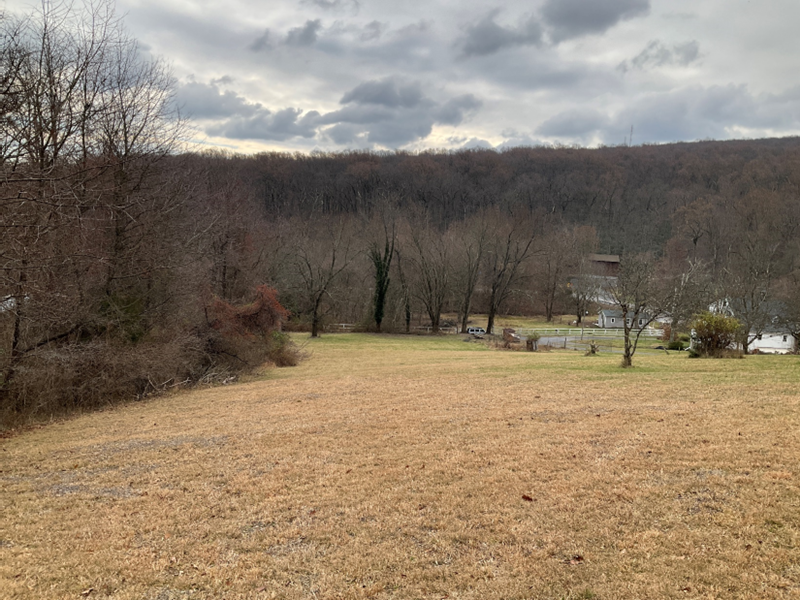Stable Housing Solutions For Veterans – Forbes Advisor – Technologist
Editorial Note: We earn a commission from partner links on Forbes Advisor. Commissions do not affect our editors’ opinions or evaluations.
Honoring service members goes beyond ceremonies, parades and free coffee; it’s about providing veterans and their families with a strong foundation for a stable life.
With VA loans, housing assistance programs and new policies designed to reduce homelessness, veterans today have more support to secure stable housing.
VA Loans Are A Game-Changer for Veteran Homebuyers
VA loans are a massive win for veterans looking to buy a home, offering unique benefits that make homeownership far more accessible. Originally established after World War II to help returning service members, the VA loan program has grown stronger in recent decades.
Veterans are a growing force in the real estate market, with the number of military households purchasing homes steadily climbing since the 2008 financial crisis. Today, VA loans, which don’t typically require a down payment, account for about 11% of new mortgages. Nearly 90% of military members report taking advantage of this benefit, according to Veterans United Home Loans, a VA lender.
Here’s a look at the number of VA home loans given out from 2018 to 2024 (with data covering up to Q3 in 2024). This shows how often veterans have been using VA loans each year to buy homes or refinance. It’s a good snapshot of how popular and accessible these loans have been over time. The significant increase in 2020 and 2021 corresponds with historically low interest rates during that period.
Source: Department of Veterans Affairs
Veterans like Lee Iverson, a loan officer at MMC Lending in Palmdale, California, recognize the financial relief that VA loans provide.
“Being a veteran myself, it’s $0 down, and there’s no mortgage insurance for the life of the loan,” Iverson says.
For many military families, this means achieving homeownership without the stress of a hefty down payment.
Christopher Davis, assistant vice president of home lending at Navy Federal Credit Union, emphasizes that VA loans often offer lower rates than conventional mortgages—usually by about 0.25% to 0.5%.
“Low interest rates can make a huge difference over the life of a mortgage,” he says.
Beyond affordability, VA loans offer veterans long-term flexibility, allowing them to use their remaining entitlement—which is the amount of VA loan benefits they’re eligible for, similar to a reusable credit limit—to purchase additional properties. This means veterans who outgrow their homes can rent them out and still use their VA loan benefits to buy a new home.
This flexibility can allow veterans to build wealth over time, creating a path to financial stability.
“Service members earn terrific financial benefits during and after their service, but too often, these benefits go unused,” Davis adds.
He recommends that veterans consult with realtors and VA mortgage lenders to leverage these options fully.
Women Veterans Are a Rising Force in the Housing Market
As more women serve in the U.S. military, they become a prominent part of the homebuying landscape. Today, women make up 20% of new recruits, 17.5% of active-duty personnel, and 21.6% of selected reserve members, with nearly 1.9 million women veterans in the U.S.
The Department of Veterans Affairs estimates that 18% of veterans will be women by 2040, underscoring the need for VA loans and housing programs that align with their goals and circumstances.
Female veterans are also buying homes at higher rates than their civilian counterparts. In 2022, female veterans owned homes at a rate four percentage points higher than civilian women—a gap that nearly doubled from the previous year and reached its highest point in five years.
Over the past five years, female veterans have increasingly turned to VA loans as a resource, using their home loan benefits more than 574,000 times between 2018 and 2022, according to VA lender Veterans United. During that period, annual usage of VA loans grew by 20% among female veterans, outpacing the 15% growth for male veterans.
“I always tell realtors to ask both the man and the woman if they’re veterans,” says Iverson. “In many cases, it’s actually the wife who served.”
Military-Friendly Cities: Where Veterans Are Thriving
Across the U.S., some cities are strongholds for military homeownership, offering veterans affordability, support, and employment opportunities. Realtor.com identified top housing markets for veterans based on affordability, VA loan usage and homeownership rates.
Des Moines, Iowa, for example, boasts a veteran homeownership rate of nearly 89%, outpacing nonmilitary households in the area. Other cities, like Augusta, Georgia, and Birmingham, Alabama, also rank high, with military homeownership rates over 80%.
Here’s a look at the top cities for veteran homeowners in 2024:
- Des Moines-West Des Moines, Iowa: Military household homeownership rate of 88.8%
- Augusta-Richmond County, Ga.-S.C.: 81% military homeownership rate
- Columbia, S.C.: 81.8% military homeownership rate
- Birmingham-Hoover, Ala.: 84.9% military homeownership rate
These cities offer strong military communities, affordable housing options, and job opportunities, making them ideal spots for veterans to settle down and start the next chapter of their lives.
Reducing Veteran Homelessness is a National Priority
While homeownership is a goal for many veterans, stable housing also means addressing homelessness among veterans.
The Department of Veterans Affairs (VA) has set ambitious goals for 2024, including placing at least 41,000 veterans experiencing homelessness into permanent housing and ensuring that 95% remain housed throughout the year.
This effort is part of a broader nationwide push to ensure no veteran is left without shelter or support. Thanks to targeted efforts and resources, veteran homelessness has dropped by over 52% since 2010.
For unhoused veterans, immediate support is available through the National Call Center for Homeless Veterans at (877) 4AID-VET (877-424-3838).
Local VA Medical Centers (VAMCs) can also provide direct assistance and referrals to housing programs.
Preparing for Homeownership: Tips for Veterans
For veterans ready to buy a home, there are a few key steps to make the process smoother:
- Check your credit score: While VA loans are more lenient with credit requirements, having a solid credit score can improve your options. You can review your credit report for free every year by visiting AnnualCreditReport.com, calling 1-877-322-8228 or mailing a completed annual credit report request form to P.O. Box 105281, Atlanta, GA 30348-5281. You can also request one report from each of the three major bureaus annually and choose to get them all at once or separately. For verification, provide your name, address, Social Security number and birth date. For a free FICO score, check Experian or credit unions like Navy Federal.
- Work with lenders specializing in VA loans: Not all lenders are familiar with the VA loan process, so it’s worth finding one who understands the nuances. “We highly recommend working with realtors and lenders who specialize in VA lending,” Davis says. This expertise ensures veterans can take full advantage of their benefits.
- Explore seller contributions: With a softening market, many sellers are open to contributing to closing costs. Veterans should discuss this option with their realtor, as these contributions can significantly reduce upfront expenses.
- Plan for the long haul: Veterans who own a home for at least one year can rent it and use their remaining VA loan entitlement to buy another house. This strategy helps veterans build wealth over time, turning a single VA loan benefit into a long-term financial asset.
With VA loans, targeted housing initiatives and a nationwide commitment to ending homelessness, the country is taking meaningful steps to honor veterans. Programs like these don’t just recognize veterans’ service; they give veterans the foundation for a life they’ve earned.
Faster, easier mortgage lending
Check your rates today with Better Mortgage.


